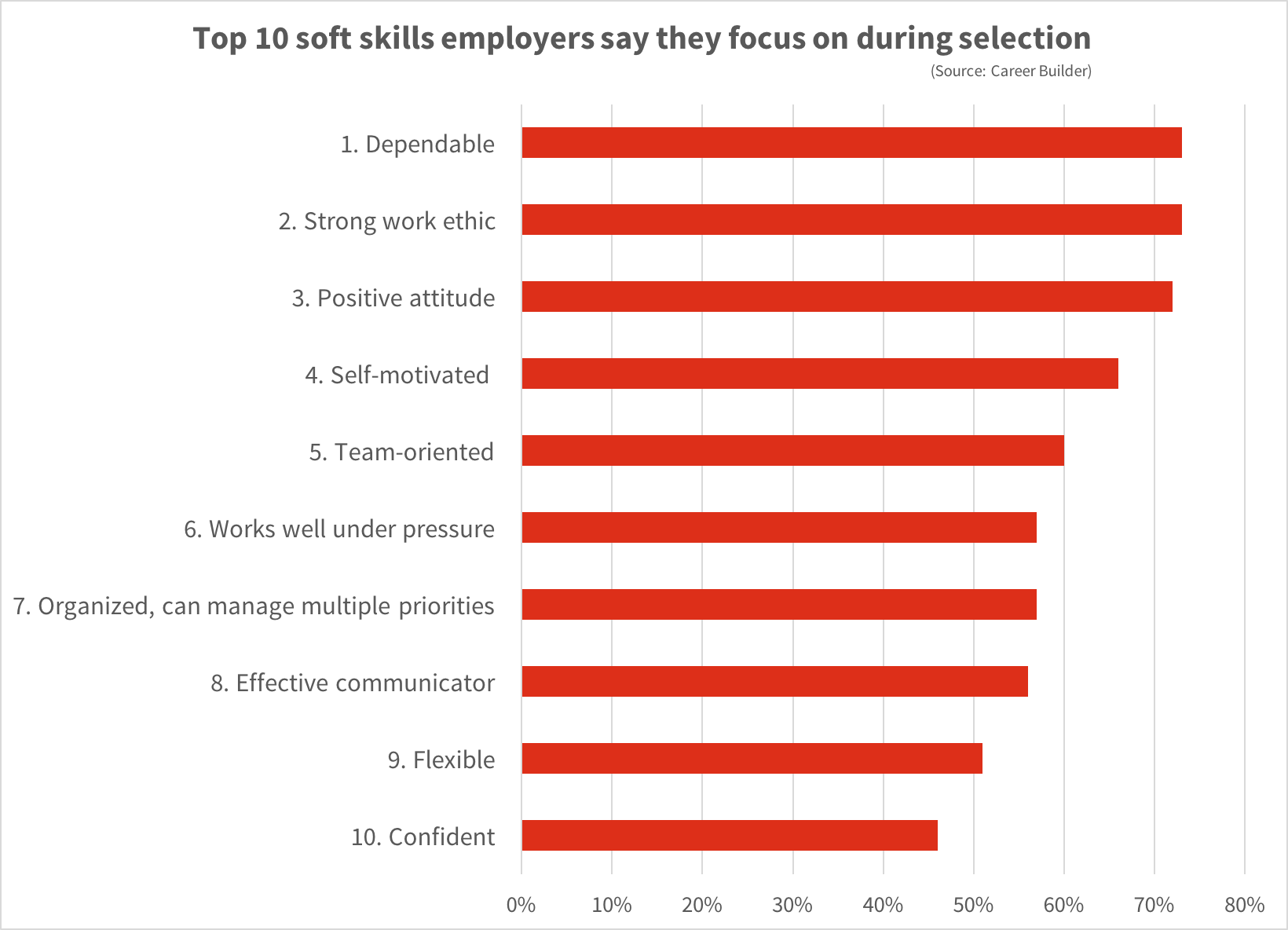Do you have the job, and the career, you want? How about five years from now? Twenty year ago I noticed that not my content focused and brilliant fellow student (let’s call him Peter), but the socially skilled (‘Marieke’) got the great career. In the 21st century it’s not so much your knowledge that will get you the job and career. Soft skills like time and stress management, problem-solving, communication and ability to work in teams have much more influence now. Make sure you have and grow those skills. Then you will get and keep a job.
Land a job five years from now
Peter graduated cum laude and took a job as an expert at his internship company. Three years later his job got cancelled and he lost his job. Marieke, graduated with a 7 out of 10 grade average, started a management traineeship. But after a year she quit. Four years later she heads a department of 20 ICT experts.
The difference between Peter and Marieke? Well-developed personal, emotional, social and intellectual skills! Having those skills increases the likelihood that you too will have a job five years from now. Moreover, they make it more likely that you will work for one of the better companies, and that your salary will be above average. Why is that? Employees with strong soft skills are more productive. Some twelve percent, researchers from University of Michigan Ross School of Business, Harvard University and Boston College calculated recently. And which boss does not like hard workers?
Previous studies showed that employers value these soft skills at least as much as knowledge. 16 percent of them even valued ‘soft’ skills during selection processes higher. Nearly 70 percent of the Dutch HR managers, however, struggles to find employees who have them, according to research by LinkedIn. They also see a link with productivity. Three-quarters (74 percent) say that the productivity of a company suffers from a lack of soft skills in a team.
Continue to meet the requirements of the 21st century
Marieke lost her job earlier than Peter did. But through her having broad interests and her developed skills, she started as an ICT consultant a month after she quit her traineeship. Peter needed a year to find a similar position. And that one paid substantially less.
Deep knowledge is nice, but having broad interests and well developed skills leverage your worth in the job market.
Whenever you apply, make sure to show your soft skills. Have a great job already? Well-developed soft skills increase the likelihood that it will stay that way. Take care of your development. Make sure to keep up with skills to meet the demands of 21st century employers. Then you will reduce the chance of being replaceable, and that you will come to stand on the sidelines.
Peter discovered this too. For his new job he had to attend our Advisory skills training. Had to, because ‘he knew about all there was to know about his area of expertse’. What could he possibly learn from a ‘blahblah training’?
At the start of the training I simply asked him: ‘What is the value of the perfect answer… to the wrong question?’ Soon Peter came to realise that a fine answer to the real question holds way more value. And that finding the real question has hardly any link to the deep knowledge, but is all about soft skills.
Since then Peter studied communication, leadership and management. Next month he will start as the head of his own department.

 Happy, High Performance Teaming
Happy, High Performance Teaming
During a Happy High Performance Teaming workshop, participants learn how to get the best out of themselves, and each other. They also fathom how to apply what they learned, in their practice. After the workshop participants work (together) more effectively and efficiently.

 Future-proof with soft skills
Future-proof with soft skills Happy, High Performance Teaming
Happy, High Performance Teaming





Leave A Comment